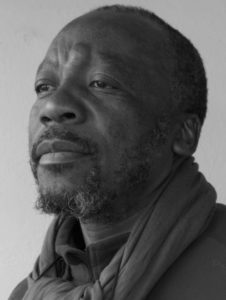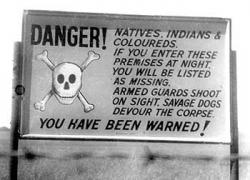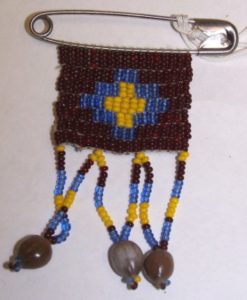Feb 22 2018
Zulu Love Letter
The movie Zulu Love Letter by the filmmaker Ramadan Suleman. The movie takes place in post-apartheid South Africa, focusing on a journalist named Thandeka. Thandeka’s life is greatly affected by memories of her active political involvement during apartheid, particularly her article concerning the police murder of a young girl, Dineo, which she was a witness to. When Dineo’s mother asks for Thandeka’s help in reconciling her daughter’s death, Thandeka’s life becomes much more complicated than before. Along with the issues Thandeka faces in her fight with society, she also faces a fight at home. These culminate in Thandeka trying to understand her daughter Mangi, who was born deaf, as well as trying to reconcile with her estranged husband, Moola.
A Zulu Love Letter, the title of the film, is art in the form of beadwork. The elaborate bead designs are messages meant to symbolize love and affection. Historically, the colors used in the beadwork have different meanings. For example, blue represents faithfulness. In the film, Mangi, Thandeka’s daughter, creates her own Zulu love letter to show her love for her family. The filmmaker, Ramadan Suleman, was born in South Africa in 1955. He studied film in London and Paris before he studied under two of Africa’s own infamous filmmakers, Med Hondo who he helped with the film Lumière Noire, and Souleymane Cisse on Yeelen. Suleman’s first solo film was a short film called The Devil’s Children (1989). Since then he has gone on to produce several films including Zulu Love Letter, all of which have won awards ranging from the Chicago Film Festival to Chavellier des arts et Lettres by France.
The filmmaker, Ramadan Suleman, was born in South Africa in 1955. He studied film in London and Paris before he studied under two of Africa’s own infamous filmmakers, Med Hondo who he helped with the film Lumière Noire, and Souleymane Cisse on Yeelen. Suleman’s first solo film was a short film called The Devil’s Children (1989). Since then he has gone on to produce several films including Zulu Love Letter, all of which have won awards ranging from the Chicago Film Festival to Chavellier des arts et Lettres by France. The issue addressed in Suleman’s film is that of not only apartheid but post-apartheid issues in South Africa. Apartheid was a policy implemented in South Africa in 1948 which continued from then until 1994. Apartheid was similar to segregation in the United States separating native Africans and other races from European settlers. The major difference between segregation in America and apartheid in South Africa was the legality of the separation of races. The result was severe housing separation between European settlers and Native Africans as well as land redistribution of the most fertile land to Europeans. Native Africans were not only given land that was labelled as bad for farming, they were also only given enough land for subsistence farms. This system ensured that Native Africans were forced to work on European farms to make a living wage.
The issue addressed in Suleman’s film is that of not only apartheid but post-apartheid issues in South Africa. Apartheid was a policy implemented in South Africa in 1948 which continued from then until 1994. Apartheid was similar to segregation in the United States separating native Africans and other races from European settlers. The major difference between segregation in America and apartheid in South Africa was the legality of the separation of races. The result was severe housing separation between European settlers and Native Africans as well as land redistribution of the most fertile land to Europeans. Native Africans were not only given land that was labelled as bad for farming, they were also only given enough land for subsistence farms. This system ensured that Native Africans were forced to work on European farms to make a living wage. Even after 1994, when apartheid had legally been abolished, the effects still stand. Today this is visible by the difference in housing structures available. While there is a newly forming black African middle class, the majority of Native Africans still inhabit shacks or closely constructed concrete houses. The picture above shows the vast differences in housing. While you can assume the picture was taken early in the apartheid era or even right at the end, maybe around 1994, the article by Daily Mail says that the picture was taken in 2016, only 2 years ago. Along the same lines, while the government intervened to try to undo the negative effects of land redistribution, Native Africans still hold less land than European settlers.
Even after 1994, when apartheid had legally been abolished, the effects still stand. Today this is visible by the difference in housing structures available. While there is a newly forming black African middle class, the majority of Native Africans still inhabit shacks or closely constructed concrete houses. The picture above shows the vast differences in housing. While you can assume the picture was taken early in the apartheid era or even right at the end, maybe around 1994, the article by Daily Mail says that the picture was taken in 2016, only 2 years ago. Along the same lines, while the government intervened to try to undo the negative effects of land redistribution, Native Africans still hold less land than European settlers.
(more…)

